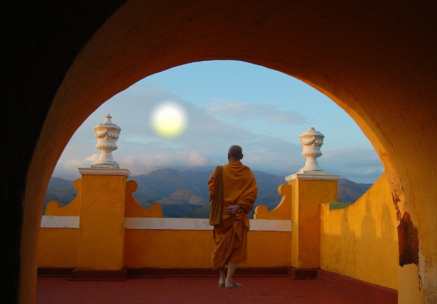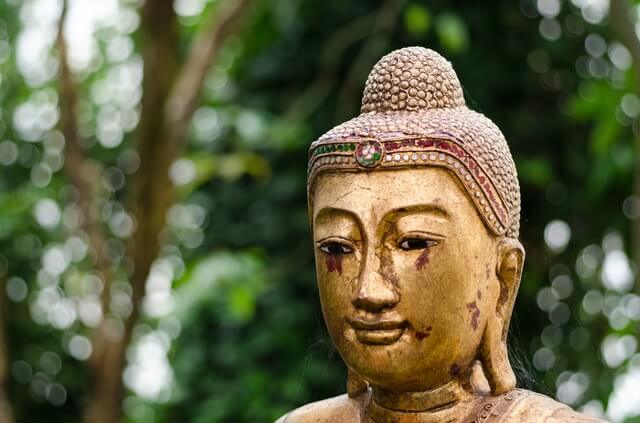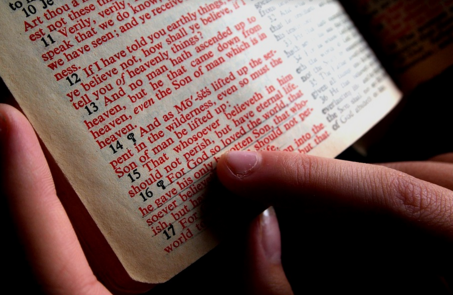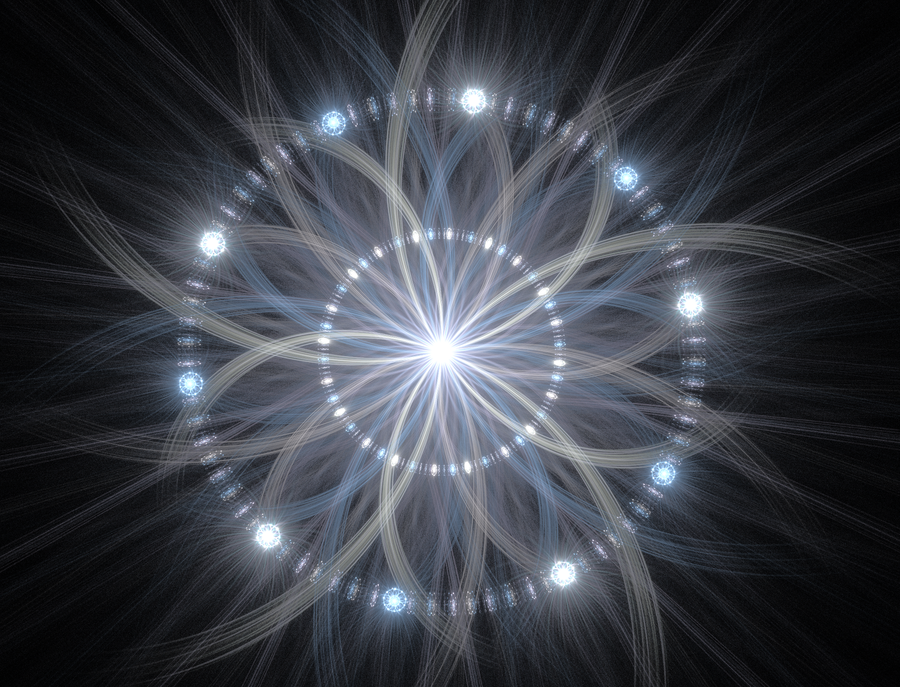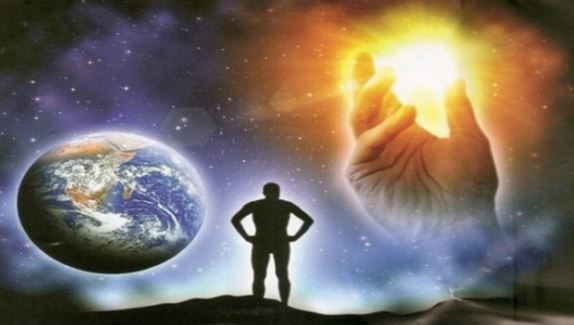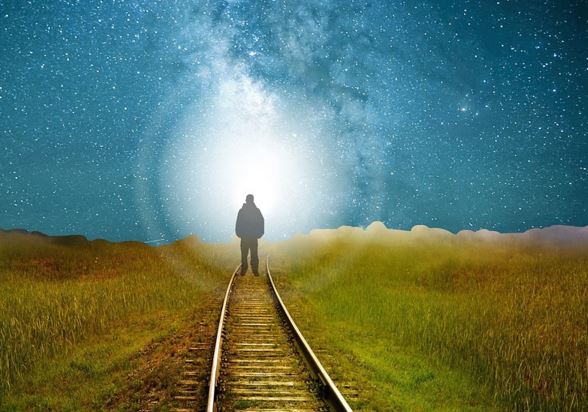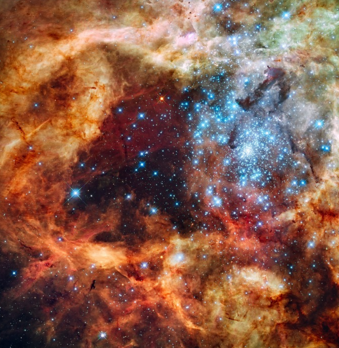What we can say about Buddhism and Reincarnation is that there is something of ours that remains in our surroundings and what this theory claims is that there is another existence after death. However, in the case of Buddhist reincarnation we must say that the cycle covers six states of existence, which must be traversed by all those beings endowed with sensitivity, who have to comply with the law of karma, for mistakes made earlier.
These states are: the gods; asuras (elemental beings); humans; animals; ghosts; and inhabitants of hell, and only in the state of human being one has the possibility of achieving spiritual awakening and be freed from the wheel of reincarnation. However, the theory of Buddhist Reincarnation ensures that a person can choose to be born again after their death. Just as does Hinduism, the reincarnation in Buddhism involves a burden or penalty.

Actually, the reincarnation is seen as a disgrace, that’s why Buddhists believe that at the time of death one’s character is to be determined for the next reincarnation. This is why Buddhist deaths should always be appropriate and represent one of the key moments of religion. The Buddhist reincarnation allows a person to choose the next womb where they will be born. According to the Tibetan Book of the Dead, buddhists believe in reincarnation as a 4-day process, between the death of a person and their next birth. As we know, every living being is subject to death and reincarnation, for this reason, high Buddhist monks have the ability to choose what their next reincarnation will be, as they can also choose to stop reincarnation (provided they carried a life according to their religion and their votes).
Buddhism and Reincarnation
Buddhist theory of reincarnation calls these cases as “tulkus” and they represent the polar opposite of the general theory of reincarnation which says that people’s souls are reincarnated in one body. Buddhist reincarnation is seen as an opportunity for learning from one’s mistakes, which means that every human being has the right to a second chance. Given this parameter, according to Buddhist reincarnation one should never care about the physical condition of any being, no matter if it interferes with their capabilities, and the most important thing is to try and make every effort to achieve full spiritual development because today we are a product of what we were before. Buddhists believe in reincarnation we are the fruit of something we have sown in a previous life.
Read also: Is There Reincarnation After Death?
Buddhist Reincarnation Today
The theory that it is up to Buddhist reincarnation is based on the teachings of Prince Gautama who as we know, gave up a life of luxury and commodities for the tireless pursuit of inner peace. In the Buddhist doctrine of reincarnation Karma is responsible for setting the direction of human life explaining all the inequalities that occur in it. Today those who follow the beliefs of Buddhism are about 340 million people, and each strives to lead a life of peace and meditation since their life is governed based on the beliefs of Buddhist reincarnation.
Like Hindus, Buddhists live a healthy life of devotion as they prepare for their own reincarnations, and the main intention is to avoid having to settle scores in any of their incarnations. Basically, Buddhists believe in reincarnation as, if they do not work accordingly from one life to another, the burden of Karma due to the negative behavior will cause the person to be embodied in beings considered inferior to human, such as animals, or plants.
Buddhist Death and Rebirth in Successive Lives

According to Buddhism, when the physical body dies, our mind which is, in fact, a more subtle form of consciousness is separated from it. In life, consciousness is shaped and conditioned by karmic tendencies a person has accumulated over countless lives, and when it dies, the subtle consciousness brings along these tendencies, in transit to the rebirth. During the process of death, after successive extinction of the senses, the consciousness withdraws to its resting place in the center of the heart. For an ordinary person, conscious perception decreases gradually and at the time of death embraces a loss of consciousness, similar to that experienced when we were asleep. After some time we wake, but at first we do not even notice that we have died until, the texts say, certain experiences reveal what happened: when we try to talk to our family or friends, they do not perceive our presence or hear our words; if we stand facing the sun, we do not project any shadow; if we walk on sand we do not leave any footprints. Finally, we realize that we have separated from life, that we have died.
Then follows a post-mortem, which can be a short or very long state. According to Tibetan tradition, with death starts a period that lasts 49 days, during which we exist in the bardo, the intermediate state between death and rebirth. It is a purely mental existence; consciousness is nothing but a subtle body, created by the mind. In that state we still have experiences, but, not being grounded to the physical existence, they are extraordinarily vivid, strange and frightening. Ordinary consciousness longs desperately to find a new physical incarnation, reaffirm its existence, for which seeks what is familiar or, in other words, the same kind of situation where it was when it died. In Buddhist Reincarnation terms, it tries to link itself to a situation that matches its karmic state at death.
The Reincarnation Process in Buddhism Belief
In their search for a body and an environment that are familiar, consciousness is attracted to a man and a woman whose union can offer the karmic continuity it craves. According to Buddhism, conception occurs when, on the one hand, a female can get pregnant and, on the other, a consciousness is looking for the karmic situation that will arise from this conception. When these conditions concur, “fertilization” occurs, the woman becomes pregnant and the conscience finds a new home.

But not all are reborn in human bodies. The accumulated karma of some consciences leads to other realms of existence. In Buddhism we known six, all of samsaric nature and conditioned by karma, but different by the relative amount of suffering or happiness that exists in each of them. They are divided into three lower realms: the hell beings, hungry ghosts and animals, and three higher realms: that of humans, demigods and gods.
Of the three lower, the lowest is the kingdom of hell with burning heat and freezing cold (naraka), characterized by an aggressive environment and a painful end. Consciences whose karma has been generated by anger and uncontrolled aggression, and the damage caused to other beings reborn in the hell realm, which corresponds to that state of mind. Above this is the realm of hungry ghosts (preta), who have a constant feeling of physical and psychological misery, and experience intense hunger and thirst. The karma that generates a life based on desire, greed and ambition, and sees in others a means to achieve their goals leads to a reincarnation here. Also reborn here are consciences of people whose life was cut short prematurely and could not let go of their attachment to it. These spirits roam among the living for many years, or even centuries, and frequent the places they knew, trying to contact the living and satisfy their sense of dissatisfaction.
The highest realm of the three lower is that of animals, and is characterized by ignorance and fixed behavior. Consciences who are born here are the ones that in other lives behaved clumsily and foolishly, and willingly ignored everything that was foreign to their routine, which caused harm to others or ignored important needs. In the three lower realms what prevails is suffering, while in the top three there is less pain and more happiness. The next higher realm is the human (manusya), in which a relative balance of suffering and happiness coexists. The human kingdom is the most conducive to achieving enlightenment and the only one where the state of a Buddha can be achieved. The advantage of the human kingdom is that in the two upper realms, happiness is such that things are not motivated to change their situation, while in the lower realms, the suffering is such that beings are not able to distance themselves enough from it to learn from their experiences and change. Only in the human realm there is enough necessary suffering for the emergence of motivation to seek spiritual development, but not to the point that people are completely beaten by the pain.
Above the human kingdom are the realms of the gods (Deva) and the demigods (Asura), where happiness is great and life span is very extensive. Reincarnation in the two higher realms is the result of kindness and generosity practiced in previous lives. However, despite the positive aspects of their existence, beings in these two realms still live immersed in samsara, for attachment to their situation produces karmic seeds that will sooner or later make them fall.
Read also: 7 Reincarnation Stories That Proved To Be True
Ordinary rebirth from one moment to another, in the span of a lifetime

The doctrine of reincarnation in Buddhism as the transition from one life to another is related to a more subtle conception, according to which reincarnation occurs within the same functions of the mind. Buddhism teaches that the concept of a solid and continuous self does not come from reality, but it is an idea we impose on our fundamental experience of transience and discontinuity. However, we cling to the existence of a self because we long to be, to exist, to grow, to gain power and control, to never cease, to never die. The opposition between our eagerness to see a solid “Me” and the very fact that it does not exist is what produces the continuous suffering of human existence. When reality is not what we want and we persist in changing it, that is suffering. The more we deny what we really experience, the more intense our pain becomes; The more we fight, the more self-centered, neurotic, oblivious to others and perverse we become.
See also: Do Christians Believe In Reincarnation?
However, the experience of impermanence and discontinuity that we all experience, by subliminal it may be, reveals the perception of an exceptionally clear intelligence. It is this intelligence inherent in all beings, which sees things as they are (yathdbhutam). This perception or intelligence is prior to the ego and it is what is called Buddha nature (buddha-gotra), essential to every human being. On the contrary, the belief in a permanent self is contingent, incidental and relatively shallow. It can obscure in a greater or lesser degree the Buddha nature, but it can not destroy, damage or even tarnish it. No matter how much we try to deny what is true (that there is no “Me”) and insist on what is not there, we will never succeed. The more neurotic our attitude is in this respect, the more we will have to fight to defend our dream and more harm we will do to others as a result.
According to Buddhism, the conventional concept of death is inseparably linked to the idea of a self, because it presupposes the idea of something that really exists today and that, at some point, will cease to exist. While, for us death means extinction of the self we consider to be, actually that happens constantly, in every moment of existence. The idea of “Me” (and “Me” is nothing but an idea), like the rest of our concepts, is born, lives temporarily and disappears. In other words, the death of the self we fear is an integral and ongoing part of our experience. But we do not even notice it because of our fear of non-existence, because of the stubborn ignorance and the inertia of our avoidance strategies, known as karma, that we have developed over countless lives. But, as we mentioned before, we are subliminally aware of the constant death of the self at every moment, and this is what makes us so afraid of physical death.
Thus, each moment of life carries with it the death of our beloved self, a death that is followed by a rebirth (determined by ignorance and karmic formations) of another “incarnation” of the idea of the self. This ongoing process of death and rebirth, according to Buddhism, does not differ essentially from the process that occurs when we die and are reborn physically. The process is exactly the same, except that in the death and rebirth from moment to moment we take the same physical body as the basis of our concept of self (our physical body in this life), while at physical death, we must find another hardware, another body.
But an important question remains unanswered. If there is no permanent self, what produces continuity from one moment to another and from one life to the next? Obviously, there is some kind of continuity: one becomes a completely different person each time, and Reincarnation in Buddhism emphasizes the karmic continuity between successive lives. Simply put, what is reborn again and again is nothing but an idea, the idea of “self”; It is the strong belief that each person has, that he or she is a substantial and continuous entity, which continues to ignore the reality of things. This ignorance is based on certain patterns of evasion, which remain from one moment to another and from one life to another. But such permanence is an illusion, not a substantial reality. Every moment of illusion conditions and results in the next moment of illusion that has the same structure. However, between a moment and another there is a period in which the illusory idea of self could be banished. The succession of these ideas about the self, discontinuous but karmically linked, is called the “flow of life” (samtana in Sanskrit, gyü in Tibetan). The flow of life brings all the effects of past actions, and because of ignorance, these give rise to an endless series of rebirths. Every birth of consciousness is conditioned by the previous births and, in turn, determines the conditions of the next birth.
However, once the veil of ignorance falls, due to the experience of enlightenment, the flow of life ceases. Certainly, the enlightened person will live until the karmic inertia of his physical existence is exhausted, but once they die, they will never be reborn. The idea of “self”, based on ignorance, will have faded with enlightenment and without such an idea, there is no rebirth. Interestingly, in these people, even the “reincarnation” of moment to moment does not operate as in ordinary people. This is illustrated by the biographies of great realized masters, which are often described as unpredictable, as without this continuity of personality that most of us attribute to individuality.
This concludes our research on Buddhism and Reincarnation, and hopefully will answer the question “Do Buddhists believe in Reincarnation?” as stated in the beginning of our article. Keep on browsing this website to learn more about reincarnation and life after death.
